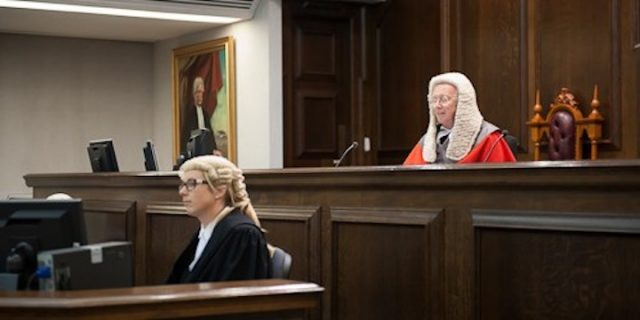It isn’t easy to be certain about anything. Science has discovered many wonderful facts, but they are always subject to change as new information is found. And there are many things that science doesn’t tell us much about – important things like love and beauty, history and ethics and the meaning of life.
And so often we struggle to decide what is true. Lovers want to know if they can trust each other. Courts want to know if the accused is guilty or innocent. Voters want to know if the candidates will keep their promises. And if you’re reading this, maybe you are asking questions about God.
Is it possible to know the truth about life and God, or is that a vain hope? Is belief in God irrational, and faith the opposite of evidence and reason? These questions don’t have simple answers, for most of us make assumptions about truth and evidence that lead us to conclusions that may be stronger than the evidence alone would allow. So even the most logical person can have beliefs that cannot be justified.
So what would constitute good evidence for God, and how can we stay open to whatever the truth may be?
Truth, faith and evidence
We know things in many different ways – from introspection (which is how we know we are hungry) to experience and observation (which when organised in certain ways can become ‘science’). It is important to understand which way is appropriate to different types of knowledge.
Can we know the truth about God? Can we be certain, is it a matter of proof? Can belief in God be justified at all? Is there a way to answer these questions?
 Check out Truth, proof and certainty for some ideas.
Check out Truth, proof and certainty for some ideas.
Many unbelievers scorn belief as being contrary to reason – faith is believing what you know isn’t true. But are believers that silly? What is faith anyway?
Dictionary and philosophical definitions of faith don’t make faith and reason so opposed. Believers use faith in two different ways – as complementary to reason and as trust in the God they believe exists.
 Think about all this more, in Is faith the opposite of reason?
Think about all this more, in Is faith the opposite of reason?
What is evidence and does God have any on his side? Are the sceptics right when they say there is no evidence for God, or are they refusing to look at the evidence?
 These questions are discussed in Is there no evidence for God?
These questions are discussed in Is there no evidence for God?
There have been times when religious believers have opposed the findings of science. Are these minor skirmishes, or fundamental? Is it inevitable that science and religion won’t get along? Do they use totally different ways to find their truths?
 I’ve looked at a lot of evidence in The conflict between science and religion
I’ve looked at a lot of evidence in The conflict between science and religion
Science has been a modern success story, and can now explain naturally phenomena that were once explained supernaturally. Does this mean that using science to demonstrate God’s existence is wrong? In particular, is such reasoning a case of God of the Gaps, and therefore unacceptable to a modern understanding?
 I examine these questions in God of the gaps – 4 thoughts
I examine these questions in God of the gaps – 4 thoughts
We all like to think our opinions are reasonable. But are they? What do psychologists say? And what about our beliefs about God? Is disbelief more logical than belief?
 I have been reading what psychologists have concluded and try to summarise this in The psychology of religious belief
I have been reading what psychologists have concluded and try to summarise this in The psychology of religious belief
Photo: Flickr Creative Commons./p>
Feedback on this page
Comment on this topic or leave a note on the Guest book to let me know you’ve visited.
